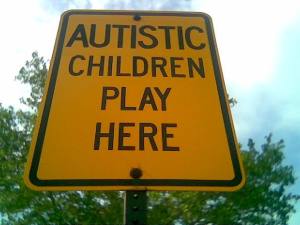 The global reaction to news that a US panel of experts in psychiatry is proposing to redesign the definition of autism has been nothing short of explosive.
The global reaction to news that a US panel of experts in psychiatry is proposing to redesign the definition of autism has been nothing short of explosive.
The incendiary move has not only struck fear into the hearts of parents of autistic children but also sparked a wider debate among medics and academics about why diagnostic rates have sky-rocketed.
This is because narrowing the criteria of the definition will have serious ramifications; affecting the status of autistic people within society and, crucially, their access to expensive extra services.
The experts – appointed by the American Psychiatric Association – are in the process of revamping a manual known as the Diagnostic and Statistical Manual of Mental Disorders (DSM V).
According to the New York Times, this will be the first major revision of the DSM – which is the standard reference for mental disorders, research, treatment and insurance decisions – in 17 years.
Although the document is not due to be finalised until the end of 2012, the New York Times notes that one study already predicts the new definition is likely exclude many individuals.
However, the DSM 5 panel “strongly disagrees”.
In the 1940s, researchers in the US began to use the word “autism” to identify children exhibiting emotional or social problems but British medics only followed suit in the 60s.
Autism affects how a person communicates with, and relates to, other people as well as how they make sense of the world around them.
Some people are able to live relatively independent lives but others may have learning disabilities requiring specialist support.
For example, something as pedestrian as teeth cleaning requires a parent to carry out an inordinate amount of thought and preparation beforehand because the child “may react badly to care being delivered because of a previous bad experience“.
People with Asperger syndrome – a form of autism – possess fewer problems with speech but may still experience difficulties communicating.
About 1 in 100 people in the UK have autism. (The National Autistic Society)
Unsurprisingly, the debate over redefining the incurable condition has exposed deep divisions among medics and families.
Allen Frances, who was the chair of the DSM IV Task Force and is the Professor Emeritus at US-based Duke University, wrote in the Huffington Post “the sudden increase in rates of autism comes from the vagueness and easy elasticity of its definition at the milder boundaries of its spectrum”.
He advocates the narrowing of the definition, along with “de-coupling school services from the diagnosis”.
“Severe, classic autism is clearly defined and absolutely unmistakable,” he concluded.
But Gillian Loughran, Editor of Autism Eye – a magazine for the parents and professionals who care for children with the incurable condition – says DSM V “is being seen within the autism community as a way for governments to curtail the sky-rocketing rate of reported cases of autism worldwide, and with it the need for services and benefits”.
She and her publisher husband, Mark Hayes, have spent more than £160,000 on “vital interventions” for their autistic son, Finn.
She added: “We went all the way to the British High Courts twice to fight for early intervention funding.
“The increase in pollution correlates with the rise in autism and chronic toxicity seen in children with autism, which can give rise to the secondary conditions that often affect them, such as inflammatory bowel disease.”
Given the dire state of global economies, it is highly unlikely sufferers not categorised as autistic will continue to be provided for as they were prior to the redefinition.
Hence, they will be the losers and governments will be the obvious winners.

